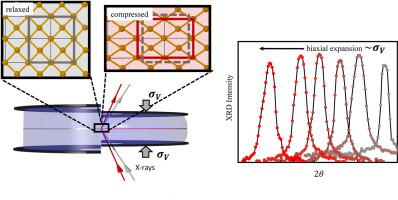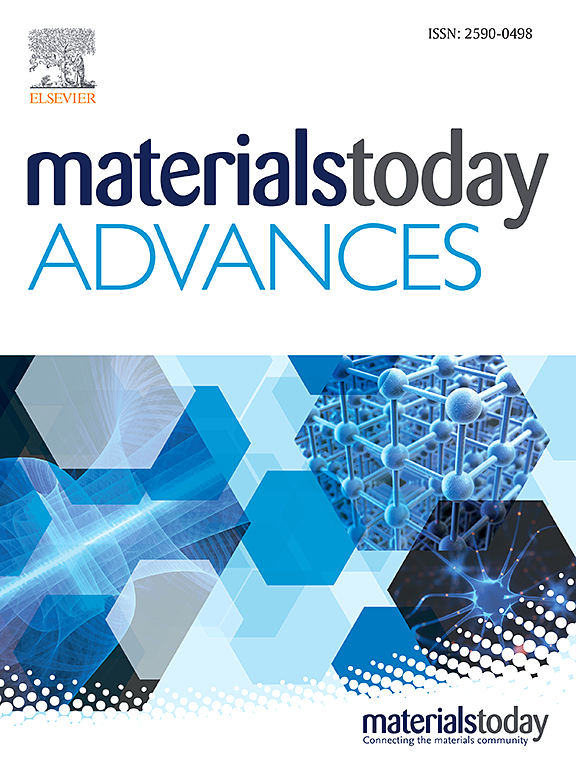Dynamic and controlled stretching of macroscopic crystalline membranes towards unprecedented levels
IF 8
2区 材料科学
Q1 MATERIALS SCIENCE, MULTIDISCIPLINARY
引用次数: 0
Abstract
Imposing and controlling strain in materials such as semiconductors or ferroelectrics is a promising way to obtain new or enhance existing properties. Although the field of strain engineering has seen a rapid expansion over the last two decades, straining semiconductor membranes over large areas remains a challenge. A generic way of tuning strain and hence band structure and electric or magnetic properties of any crystalline material can be obtained by compression of a composite structure involving poorly compressible elastomers. Mechanically similar to the principle of a hydraulic press, this work proposes a device and describes analytically a methodology to easily strain macroscopic membranes up to unprecedented values. Using X-ray diffraction and Raman spectroscopy, we tuned the biaxial strain in silicon membranes up to a value of 2.1 %, paving the way for new studies in the field of strain related physics, from semiconductors to perovskite oxide multiferroics.

宏观晶体膜的动态可控拉伸达到前所未有的水平
在半导体或铁电体等材料中施加和控制应变是获得新特性或增强现有特性的一种很有前途的方法。虽然应变工程领域在过去二十年中迅速发展,但大面积应变半导体膜仍然是一项挑战。通过压缩涉及可压缩性差的弹性体的复合结构,可以获得调整应变的通用方法,进而调整任何晶体材料的带状结构和电或磁特性。与液压机的原理类似,这项研究提出了一种装置,并通过分析描述了一种方法,可以轻松地将宏观膜的应变值提高到前所未有的水平。利用 X 射线衍射和拉曼光谱,我们将硅膜中的双轴应变调整到了 2.1 % 的值,为应变相关物理学领域的新研究铺平了道路,包括从半导体到过氧化物多铁氧体。
本文章由计算机程序翻译,如有差异,请以英文原文为准。
求助全文
约1分钟内获得全文
求助全文
来源期刊

Materials Today Advances
MATERIALS SCIENCE, MULTIDISCIPLINARY-
CiteScore
14.30
自引率
2.00%
发文量
116
审稿时长
32 days
期刊介绍:
Materials Today Advances is a multi-disciplinary, open access journal that aims to connect different communities within materials science. It covers all aspects of materials science and related disciplines, including fundamental and applied research. The focus is on studies with broad impact that can cross traditional subject boundaries. The journal welcomes the submissions of articles at the forefront of materials science, advancing the field. It is part of the Materials Today family and offers authors rigorous peer review, rapid decisions, and high visibility.
 求助内容:
求助内容: 应助结果提醒方式:
应助结果提醒方式:


